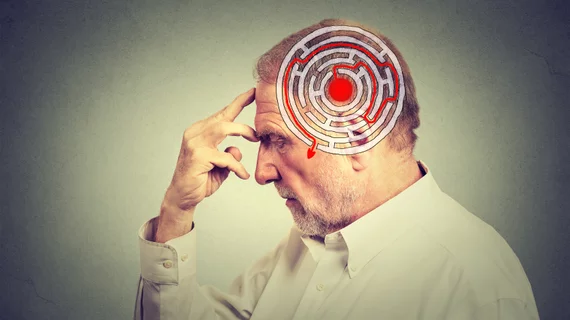Widely available CT test opens new treatment door for patients with severe stroke
Computed tomography angiography (CTA) can discern which stroke patients are most likely to benefit from a procedure that restores blood flow to the brain. The finding may spare thousands of lives each year, experts said Tuesday.
Nearly 100,000 Americans suffer large vessel occlusion strokes annually, accounting for the most stroke-related deaths in the nation. And while thrombectomy is more than 90% effective at removing clots, less than 10% of those who may benefit are actually treated.
Massachusetts General Hospital radiologists discovered CTA can help more individuals undergo this lifesaving procedure, particularly those with a slow-growing ischemic core
“With CT angiography, we’ve found a way that’s widely available to identify these slow progressors,” R. Gilberto Gonzalez MD, PhD, with the Boston institution’s department of radiology, said Nov. 2 in Radiology. “Now, a large number of patients with the most severe type of strokes can be treated.”
For the study, Gonzalez et al. analyzed exams from 31 stroke patients who underwent CTA and had MRI results on file to track ischemic growth. They found a “strong” link between ischemic core growth and smaller blood vessels triggered into action during blood flow loss, known as collateral vessels.
In other words, nearly half of the patients exhibited very slow core growth, representing a “huge” number of individuals who may benefit from thrombectomy 24 hours or more after their stroke.
Importantly, CTA is widely available across hospitals and may guide care in regions without advanced imaging. For example, doctors may perform CT and CTA, without needing CT perfusion or MRI, and quickly determine if a patient should be transferred.
The MGH team is also developing an artificial intelligence algorithm to automatically spot specific stroke patterns on imaging, which they believe will significantly help patients.
“This method is very amenable to automation,” Gonzalez said. “This is how I see it having a major effect and benefitting tens of thousands of people every year.”
Read the entire study here.

